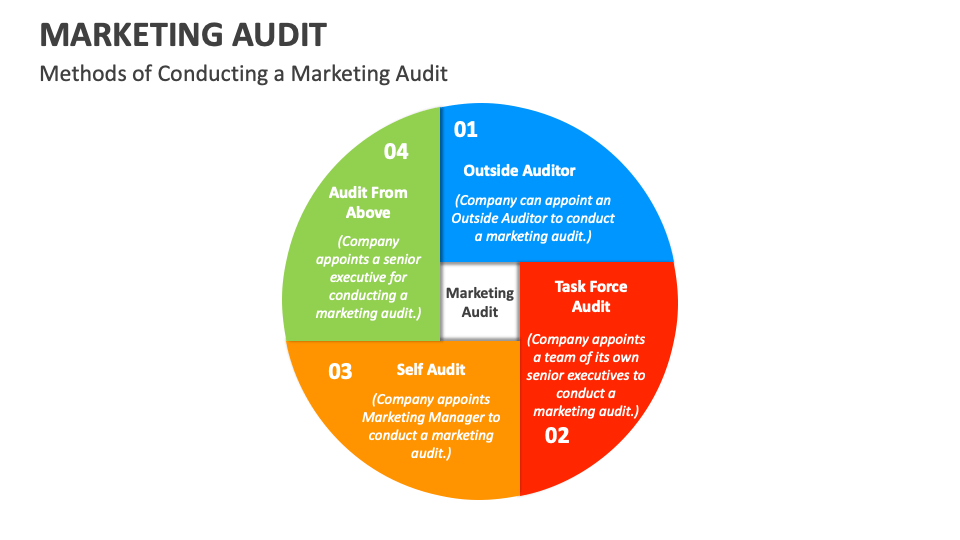Effective Marketing Approaches for Promoting Professional Audit Services sets the stage for an in-depth exploration of how audit services can elevate businesses. With the evolving landscape of professional services, understanding the diverse types of audits and their significance is crucial. This guide delves into the essence of audit services, shedding light on the pivotal role auditors play in enhancing organizational integrity and operational efficiency.
By identifying the target audience and employing the right marketing channels, businesses can effectively communicate the value of their audit services. From leveraging social media to crafting compelling content, this comprehensive overview highlights innovative strategies that resonate with potential clients, ensuring that audit services reach those who need them the most.
Understanding Professional Audit Services
Professional audit services are essential tools for businesses aiming to enhance their financial integrity and operational effectiveness. By systematically evaluating an organization’s financial statements and internal controls, auditors help ensure compliance with legal standards and provide insights that can drive strategic decision-making. These services not only build trust among stakeholders but are also pivotal in identifying areas that require improvement, thus supporting overall business growth.Professional audit services can be categorized into various types, each serving a distinct purpose.
Recognizing these categories is crucial for businesses to select the appropriate audit service that meets their specific needs. The primary types of audits include internal audits, external audits, and compliance audits, each with unique characteristics that cater to different aspects of business evaluation.
Types of Audits
Understanding the different types of audits helps organizations leverage them effectively for their benefit. Here’s an overview of the three main types:
- Internal Audits: Conducted by internal staff or departments, internal audits focus on evaluating and improving an organization’s risk management, control, and governance processes. They help identify inefficiencies and recommend corrective actions.
- External Audits: Performed by independent auditors, external audits provide an objective assessment of an organization’s financial statements. This type of audit is crucial for ensuring compliance with relevant laws and regulations and offers assurance to stakeholders regarding the accuracy of financial reporting.
- Compliance Audits: These audits assess whether an organization adheres to external regulatory standards or internal guidelines. They are particularly important in industries that are heavily regulated, such as finance and healthcare, ensuring that companies operate within legal frameworks.
The role of auditors extends beyond mere compliance checks; they bring immense value to organizations by delivering insights that foster accountability and transparency. Their expertise aids in risk assessment, operational efficiency, and strategic planning, enhancing the overall resilience of a business.
“Effective auditing is not only about compliance but also about providing value and fostering trust within an organization.”
The contribution of auditors is evident when considering real-life examples such as the Sarbanes-Oxley Act, which mandates rigorous auditing practices for public companies in the U.S. This legislation has significantly increased the demand for external audits, showcasing the critical role auditors play in ensuring financial integrity and investor confidence.Overall, professional audit services are indispensable for businesses aiming to thrive in a competitive landscape.
By employing various types of audits, organizations can gain a comprehensive understanding of their financial health and operational effectiveness, ultimately driving long-term success.
Target Audience Identification
Identifying the right target audience is crucial for effectively promoting professional audit services. Understanding the demographics and characteristics of potential clients enables audit firms to tailor their marketing strategies for maximum impact. This segment will focus on defining ideal client profiles and outlining methods to gather relevant data on target audience preferences and needs.
Demographics and Characteristics of Potential Clients
Key demographics play a vital role in identifying potential clients seeking audit services. Factors such as business size, industry sector, and geographic location significantly influence client needs and preferences. The following are essential demographics to consider when profiling potential clients:
- Business Size: Small to medium enterprises (SMEs) often require audit services to comply with regulations, while large corporations may seek advanced auditing solutions for complex financial structures.
- Industry Sector: Specific sectors such as healthcare, finance, and technology have unique regulatory requirements that drive the need for specialized audit services.
- Geographic Location: Local audit firms can benefit from understanding regional business practices and regulations that affect their target audience.
Profile of Ideal Clients Seeking Audit Services
Creating a comprehensive profile for ideal clients seeking audit services involves considering various factors that help to identify their needs and expectations. Characteristics of ideal clients may include:
- Compliance Requirements: Clients in regulated industries often have a higher demand for audit services to meet legal standards.
- Financial Complexity: Organizations with intricate financial structures require detailed auditing services to ensure accuracy and compliance.
- Value on Transparency: Clients who prioritize transparency are more likely to engage professional audit services as a way to build trust with stakeholders.
Methods for Gathering Data on Target Audience Preferences
Understanding the preferences and needs of the target audience is essential for effective marketing strategies. Several methods can be employed to gather valuable data:
- Surveys and Questionnaires: Directly engaging potential clients through surveys can provide insights into their specific audit service needs and preferences.
- Market Research: Performing comprehensive market research can reveal industry trends and client expectations, helping to align service offerings with demand.
- Social Media Analytics: Monitoring interactions and feedback on social media platforms can help identify client interests and concerns related to audit services.
“Understanding your target audience is not just about demographics; it’s about comprehending their needs and how your services can provide solutions.”
Effective Marketing Channels: Effective Marketing Approaches For Promoting Professional Audit Services
In today’s competitive landscape, selecting the right marketing channels is crucial for promoting professional audit services. The choice between traditional and digital marketing methods greatly influences outreach effectiveness and client engagement. Understanding the nuances of each channel allows audit service providers to tailor their strategies and maximize their marketing impact. Traditional marketing methods, such as print advertisements, direct mail campaigns, and networking events, have been the backbone of many professional services industries, including auditing.
These methods provide a tangible presence and foster personal connections. However, they often come with high costs and limited tracking capabilities. In contrast, digital marketing techniques like search engine optimization (), pay-per-click (PPC) advertising, and email marketing offer a more cost-effective approach. They not only provide extensive data analytics, allowing firms to measure success and adjust strategies in real time, but also enable broader reach across various demographics.
Comparison of Marketing Methods
Traditional marketing methods still hold value; however, digital marketing techniques have shown superior effectiveness in reaching potential clients. The following points illustrate the benefits of each approach:
- Cost Efficiency: Digital marketing typically requires a smaller budget compared to traditional methods, making it accessible for firms of all sizes.
- Targeting Capabilities: Digital platforms allow for precise audience targeting based on demographics, interests, and behaviors, unlike the broad approach of traditional marketing.
- Measurable Results: Digital techniques provide comprehensive analytics that can track engagement, conversions, and ROI, offering insights that traditional methods cannot.
- Speed and Flexibility: Digital campaigns can be launched rapidly and adjusted easily, enabling firms to respond to market changes effectively.
Effectiveness of Social Media Platforms
Social media platforms have emerged as powerful tools for promoting audit services. These platforms not only enhance brand visibility but also facilitate direct engagement with potential clients. By leveraging platforms such as LinkedIn, Facebook, and Twitter, audit firms can share valuable content, industry insights, and updates, positioning themselves as thought leaders.The interactive nature of social media allows for community building and relationship management.
Engaging with clients through comments, shares, and direct messages fosters trust and personal connection. A recent survey indicated that over 50% of businesses that actively use social media report increased customer engagement and brand loyalty.
Effective Online Channels for Reaching Potential Clients
The effectiveness of various online channels for promoting audit services is critical for driving client acquisition. Identifying the most impactful platforms can significantly enhance outreach efforts. The following list showcases some of the most effective online channels:
- LinkedIn: This professional networking site is essential for B2B marketing and establishing connections within the finance and auditing sectors.
- Google Ads: Utilizing PPC advertising can drive targeted traffic to your website, capturing potential clients actively seeking audit services.
- Email Marketing: A well-crafted email campaign can nurture leads and keep your services top of mind for prospective clients.
- Content Marketing: Blogging and creating informative resources regarding audit processes can draw organic traffic and establish authority in the field.
- Webinars: Hosting informative webinars can position your firm as an expert while engaging potential clients on a personal level.
“The best marketing doesn’t feel like marketing.” – Tom Fishburne
Content Marketing Strategies
In the competitive landscape of professional audit services, leveraging effective content marketing strategies is paramount. By producing high-quality and relevant content, firms can engage potential clients, build trust, and establish authority within the industry. This approach not only enhances visibility but also fosters deeper connections with the target audience.Creating engaging content that resonates with the target audience involves various content types and best practices.
The following sections Artikel effective content types and strategies to optimize your marketing efforts for audit services.
Effective Content Types for Promoting Audit Services
Utilizing a diverse range of content types can significantly enhance your outreach and engagement. Consider incorporating the following into your marketing strategy:
- Blogs: Regularly updated blogs provide valuable insights and updates on audit standards, industry trends, and tips for compliance, attracting readers seeking information.
- Whitepapers: In-depth whitepapers showcase your expertise and provide comprehensive analyses of complex audit topics, appealing to decision-makers in organizations.
- Case Studies: Highlighting successful audits and client experiences builds credibility and demonstrates your firm’s ability to deliver results.
- Webinars: Live or recorded sessions offer an interactive platform to educate potential clients on relevant audit issues, fostering engagement.
- Infographics: Visually engaging infographics can simplify complex audit processes or data, making it easier for clients to understand key points.
- E-books: Comprehensive e-books can compile various blog posts and whitepapers, serving as a valuable resource for clients seeking in-depth knowledge.
Best Practices for Creating Engaging Content
To ensure your content resonates with the target audience, adhere to the following best practices:
- Understand Your Audience: Tailor your content to address the specific needs, challenges, and interests of your target audience.
- Focus on Value: Your content should provide actionable insights and information that clients can apply to their own situations.
- Maintain Clarity and Simplicity: Avoid jargon and complex language. Clear and straightforward content is more likely to engage readers.
- Incorporate Storytelling: Use narratives to illustrate concepts and connect with your audience on a more personal level, making your content more relatable.
- Optimize for : Ensure your content is discoverable by using relevant s, meta descriptions, and alt text for images.
Importance of Educational Content in Establishing Authority
Educational content plays a pivotal role in establishing your firm as an authority in the audit industry. By sharing knowledge and insights, you position your firm as a trusted resource. The benefits of creating educational content include:
- Building Trust: Clients are more likely to engage with an expert who provides valuable information that helps them navigate their audit challenges.
- Increasing Engagement: Educational content encourages audience interaction, leading to higher engagement rates across various platforms.
- Enhancing Brand Recognition: Consistent delivery of educational material helps in positioning your firm as a thought leader in audit services.
- Driving Lead Generation: Informative content can attract leads and provide opportunities for conversion through calls-to-action integrated within educational resources.
“Educational content not only informs but also empowers your audience, leading to stronger relationships and increased client loyalty.”
Networking and Relationship Building

Establishing a robust network is crucial for the success of professional audit services. Effective networking not only opens doors to new clients but also solidifies relationships with existing ones. By focusing on relationship building within relevant industries, audit professionals can enhance their visibility and credibility in the market.
Strategies for Building Professional Relationships
Building professional relationships requires a strategic approach that encompasses several key initiatives to foster trust and collaboration. Engaging with industry peers and potential clients can be invaluable for expanding one’s professional network. The following strategies are essential for nurturing these relationships:
- Participate Actively in Industry Associations: Joining relevant professional organizations provides opportunities to connect with industry leaders and peers. Involvement in committees or special interest groups can enhance visibility.
- Utilize Social Media Platforms: Leveraging platforms like LinkedIn allows audit professionals to showcase their expertise, share valuable insights, and engage with others in the industry.
- Offer Free Educational Workshops: Hosting workshops or webinars demonstrates knowledge and provides value to potential clients, positioning the auditor as an industry expert.
Importance of Attending Conferences and Events
Conferences and industry events are pivotal for promoting audit services and expanding one’s professional network. These gatherings serve as prime opportunities to meet potential clients, learn about market trends, and share innovative practices. Attending such events reinforces one’s commitment to the industry and helps in establishing a recognizable presence.
- Networking Opportunities: Conferences facilitate direct interactions with decision-makers, allowing auditors to showcase their services and build personal connections.
- Market Insights: Attending sessions and workshops leads to gaining knowledge about the latest trends, regulations, and challenges in the auditing field.
- Brand Visibility: Participating as a speaker or panelist can significantly enhance visibility and position an audit firm as a thought leader.
Leveraging Existing Client Relationships for Referrals and Testimonials
Existing clients are valuable assets in building credibility and expanding a market presence. Their testimonials and referrals can significantly influence new clients’ decisions. Nurturing these relationships is essential for long-term success.
- Request Testimonials: After successful project completions, asking clients for testimonials can provide credible endorsements that can be showcased in marketing materials.
- Implement Referral Programs: Providing incentives for clients who refer new business can encourage satisfied clients to recommend services actively.
- Maintain Regular Communication: Staying in touch through follow-up calls, newsletters, or personalized check-ins helps keep the relationship strong and encourages referrals.
Building a strong professional network is not just about connecting; it’s about cultivating relationships that can lead to mutual growth and success.
Utilizing Technology in Marketing
In today’s digitally-driven world, leveraging technology is essential for promoting professional audit services effectively. By utilizing various technological tools, firms can optimize their marketing efforts, manage client relationships more efficiently, and streamline overall processes. This approach not only enhances productivity but also ensures that services are delivered in a timely and exceptional manner, fostering stronger client connections.
Leveraging CRM Systems
Customer Relationship Management (CRM) systems serve as a backbone for managing client relationships and executing targeted marketing campaigns. A well-implemented CRM enables audit firms to maintain detailed information about clients, track interactions, and assess engagement levels. This data-driven approach allows for personalized marketing strategies tailored to the unique needs of each client.By centralizing client data, audit services can analyze trends, which aids in identifying potential upsell or cross-sell opportunities.
For instance, a CRM might reveal that a client who utilizes auditing services may also benefit from advisory services, thereby allowing targeted outreach with specific offers.
Role of Automation Tools
Automation tools play a pivotal role in streamlining marketing efforts for audit services. These tools facilitate the execution of repetitive tasks, such as email marketing, social media posting, and lead nurturing, freeing up valuable time for audit professionals to focus on core competencies. For example, by utilizing marketing automation platforms, audit firms can schedule and send out newsletters or updates to clients automatically.
This ensures that clients receive consistent communication without the need for manual intervention. Additionally, automation allows for the tracking of email open rates and engagement metrics, providing insights into the effectiveness of campaigns.
Essential Marketing Technologies Checklist
In order to effectively promote audit services, adopting the right marketing technologies is crucial. Below is a checklist of essential marketing technologies that should be considered:
- CRM Systems: Choose a robust CRM that suits your firm’s needs, such as Salesforce or HubSpot, to manage client relationships effectively.
- Marketing Automation Tools: Platforms like Mailchimp or Marketo for automating email campaigns and nurturing leads.
- Social Media Management Tools: Utilize tools like Hootsuite or Buffer to schedule posts and monitor client engagement across different social media platforms.
- Content Management Systems (CMS): An easy-to-use CMS like WordPress to manage website content and enhance efforts.
- Analytics Tools: Google Analytics to track website performance, client behavior, and campaign success metrics.
- Data Visualization Software: Tools like Tableau or Power BI to create compelling visual reports that showcase audit findings and trends to clients.
Adopting these technologies not only enhances operational efficiency but also improves client engagement and satisfaction. Embracing technology empowers audit firms to stay ahead of the competition and deliver exceptional value to their clients.
Measuring Marketing Effectiveness
Measuring the effectiveness of marketing efforts for professional audit services is crucial to understanding how well strategies resonate with the target audience. By evaluating performance, businesses can optimize their marketing initiatives to drive better results, enhance client acquisition, and increase retention rates.Key performance indicators (KPIs) provide valuable insights into the success of marketing efforts. These metrics help businesses track progress and make informed decisions.
The following are essential KPIs for audit services marketing:
Key Performance Indicators for Audit Services Marketing
It’s vital to select KPIs that align with your marketing objectives. Consider the following metrics to gauge your effectiveness:
- Client Acquisition Rate: Measures the number of new clients gained within a specific period, indicating the success of outreach efforts.
- Client Retention Rate: Reflects the percentage of clients that continue to use services over time, highlighting customer satisfaction and loyalty.
- Return on Investment (ROI): Assesses the profitability of marketing campaigns by comparing revenue generated to the costs incurred.
- Website Traffic: Tracks the number of visitors to your website, which can be analyzed to understand the effectiveness of online marketing efforts.
- Lead Conversion Rate: Evaluates the percentage of leads that turn into clients, demonstrating the efficiency of the sales process.
Collecting feedback from clients is essential for refining marketing strategies. Understanding client experiences and perceptions can reveal opportunities for improvement. Consider implementing the following methods:
Methods for Collecting Client Feedback, Effective Marketing Approaches for Promoting Professional Audit Services
Client feedback can be gathered through various channels, enhancing insights into their needs and preferences. Here are effective methods to consider:
- Surveys: Design tailored surveys to capture client opinions on your services, marketing communications, and overall satisfaction.
- Interviews: Conduct one-on-one interviews with key clients to gain deeper insights into their experiences and expectations.
- Online Reviews: Monitor feedback on platforms such as Google and social media to assess client sentiment and identify areas for improvement.
- Focus Groups: Organize groups of clients to discuss their views on marketing materials and service offerings, fostering open dialogue.
Adjusting marketing approaches based on performance data is crucial for long-term success. Regularly reviewing your KPIs allows for timely modifications that can enhance engagement and conversion rates.
Best Practices for Adjusting Marketing Strategies
Implementing strategic adjustments based on data analysis can significantly improve marketing outcomes. Consider adopting the following practices:
- Data-Driven Decision Making: Utilize analytics tools to interpret KPI trends and adapt strategies accordingly.
- A/B Testing: Experiment with different marketing messages and channels to determine which performs best and refine your approach.
- Regular Reviews: Establish a schedule for reviewing performance metrics, enabling proactive adjustments rather than reactive measures.
- Client-Centric Approach: Use client feedback to inform changes, ensuring that your marketing evolves in line with client expectations and market dynamics.
By diligently measuring marketing effectiveness, audit service providers can align their strategies with client needs, ultimately leading to sustained growth and success.
Case Studies of Successful Marketing Approaches
In the competitive landscape of audit services, companies that effectively promote their offerings stand out as leaders in the field. By analyzing successful marketing approaches, we can uncover strategies that not only attract clients but also foster long-term relationships. The following examples illustrate how specific audit firms implemented innovative techniques to enhance their visibility and client engagement.
Successful Examples of Audit Marketing Strategies
One exemplary case is that of a mid-sized audit firm, Acme Auditors, which leveraged digital marketing to increase its client base dramatically. By launching a targeted online advertising campaign, utilizing -optimized content, and engaging through social media, they experienced a 40% increase in new client inquiries within just six months. Another noteworthy example is Global Audit Solutions, known for their robust client referral program.
They implemented a structured system encouraging existing clients to recommend their services. This program resulted in a 30% increase in new business from referrals, proving the effectiveness of leveraging existing client relationships.The strategies employed by these firms reveal several key lessons that can be broadly applied to any audit service marketing plan.
- Embrace Digital Marketing: Utilize , PPC, and social media to enhance online presence and attract new clients.
- Leverage Client Relationships: Establish referral programs that incentivize existing clients to refer others, enhancing trust and credibility.
- Content is King: Provide valuable, informative content that addresses client pain points and showcases expertise to position your firm as a trusted advisor.
- Data-Driven Decisions: Use analytics to measure the effectiveness of marketing campaigns, allowing for adjustments that enhance outcomes.
- Networking is Vital: Attend industry conferences and seminars to build relationships and increase visibility within the professional community.
“Successful marketing is not just about selling; it’s about building relationships and providing value.”
These case studies not only highlight effective marketing strategies but also provide actionable insights that can be adapted by any audit firm looking to enhance its marketing efforts and ultimately grow its client base. By prioritizing digital engagement, leveraging existing relationships, and focusing on delivering valuable content, audit services can significantly improve their market presence and success.










